Londoners are being invited to ‘swap their cars for spacehoppers’ this September, when hundreds of streets across the capital are hoped to transform into temporary play spaces in celebration of Car Free Day.
The charity London Play is giving away free spacehoppers and other play ‘stuff’ to residents who are keen to ‘jump’ at the chance to try out a play street on their road. Additionally, one lucky group of neighbours will win an on-street go kart build and race workshop on the day. World Car Free Day is on Friday 22 September, and this year will be marked in London between Friday 22 and Sunday 24 September.
Play streets are simple, resident-organised events where neighbours on a road agree together to close their street temporarily, but regularly to through traffic. This allows children to play, while adults watch on, chat and get to know each other better – or join in.
With most local authorities supportive of the idea, Car Free Day is an ideal opportunity to try out a play street without committing to regular events. And people across the capital will be doing the same! Applicants will need to consult their neighbours and apply to their council well in advance. The exact process differs from borough to borough, but London Play can advise on this as well as support with promotion and consultation; and provide free play equipment to jump start the fun.
“Streets make up a massive 80 per cent of the public space in London. Car Free Day is a great opportunity for all Londoners to appreciate the great untapped potential of this space – literally on their doorstep – to build community, have fun and get active with their neighbours. Why not jump in?”
Fiona Sutherland, London Play
Once residents have seen their street in a new light, as valuable community space rather than just parking space for cars, it is hoped that many will go on to apply for regular play street sessions. For more information contact London Play via info@londonplay.org.uk, call 0203 384 8513 or visit www.londonplaystreets.org.uk

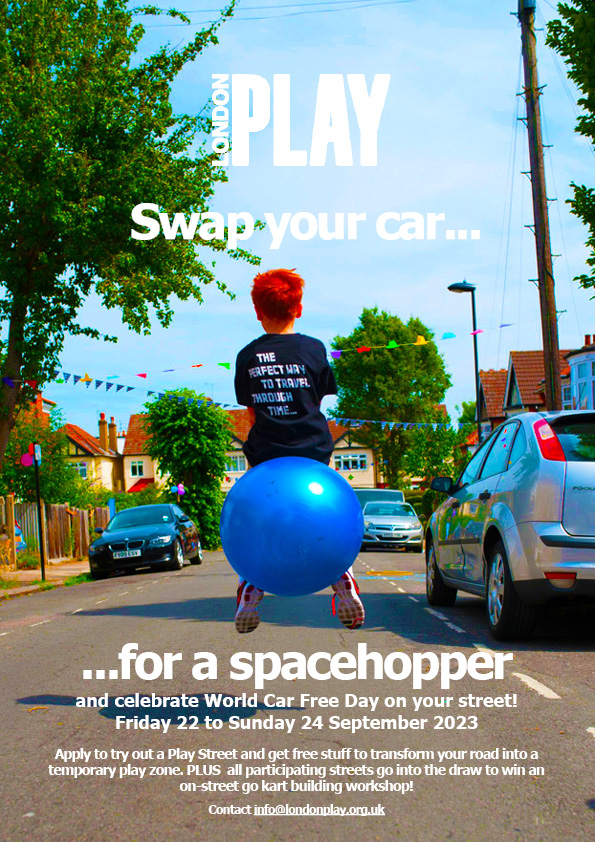

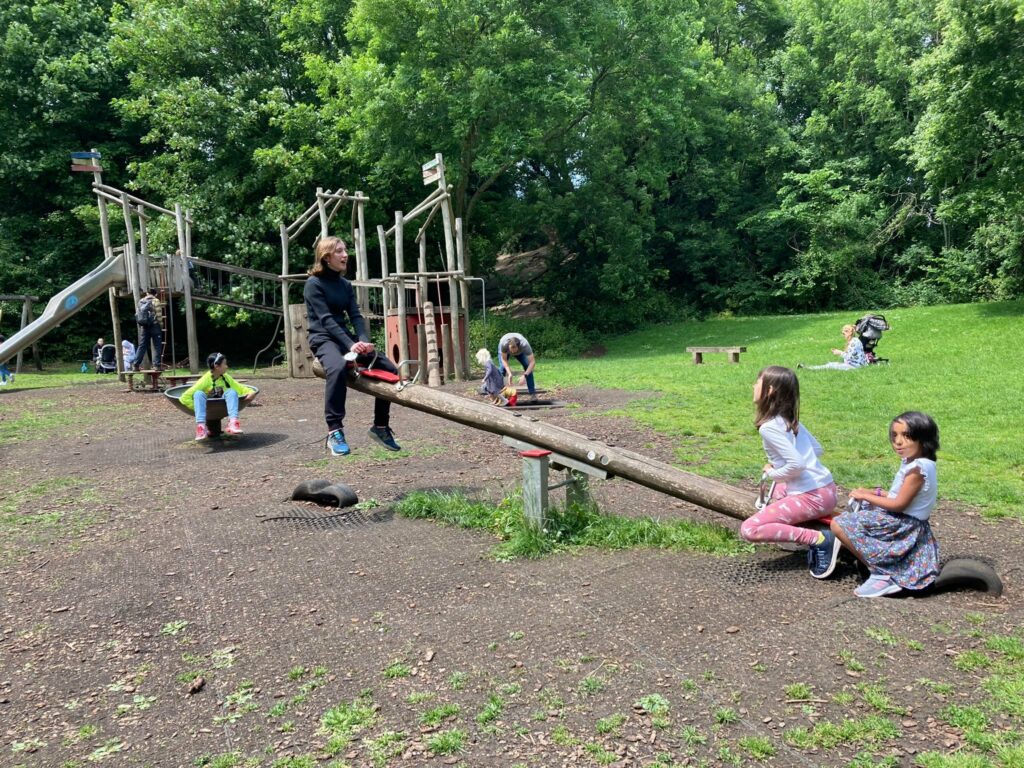
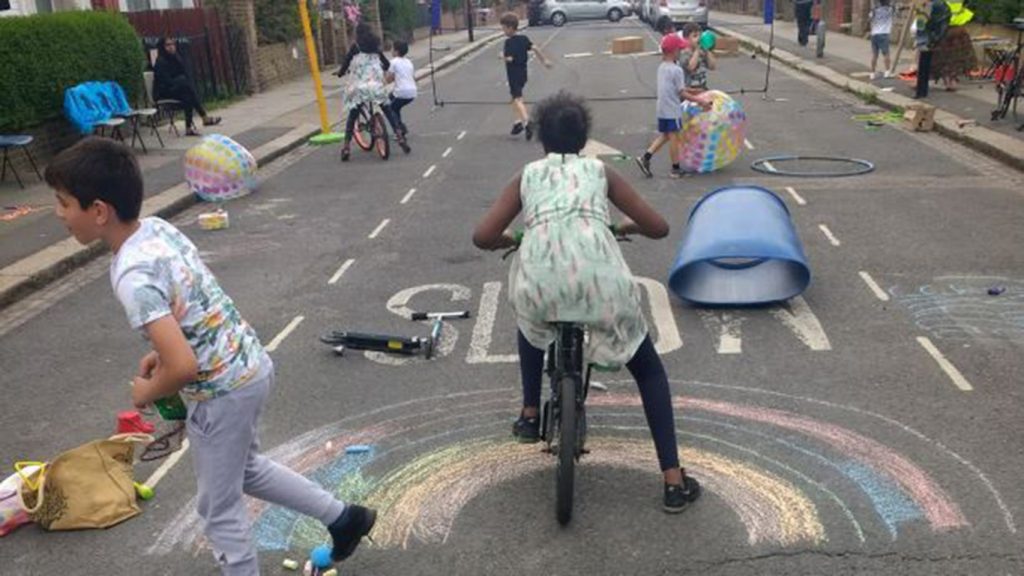
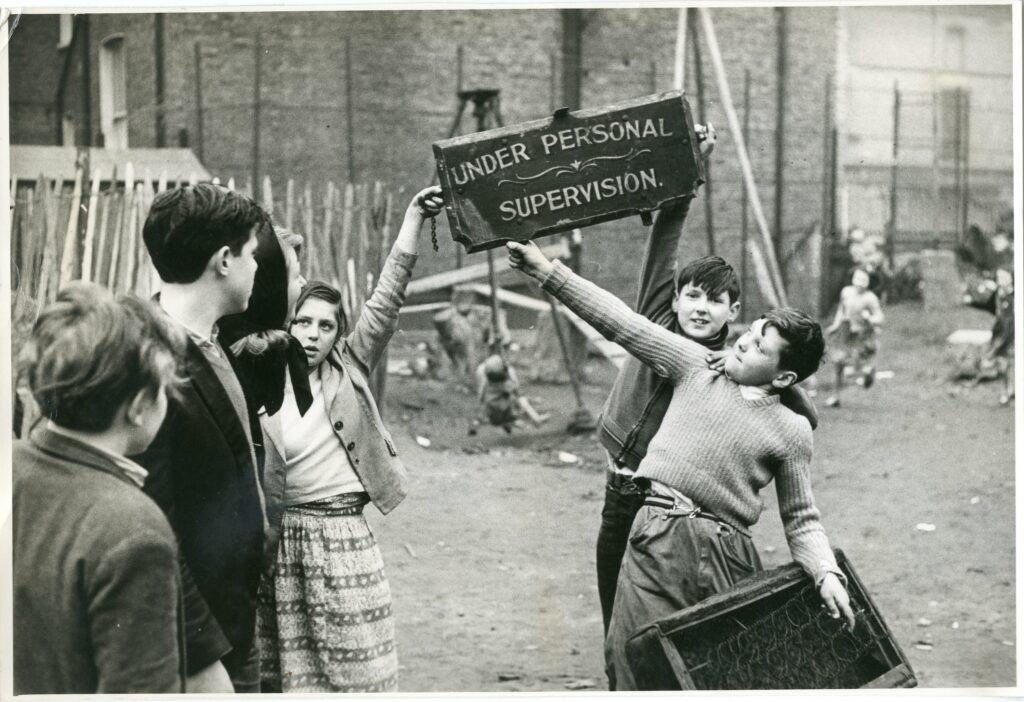

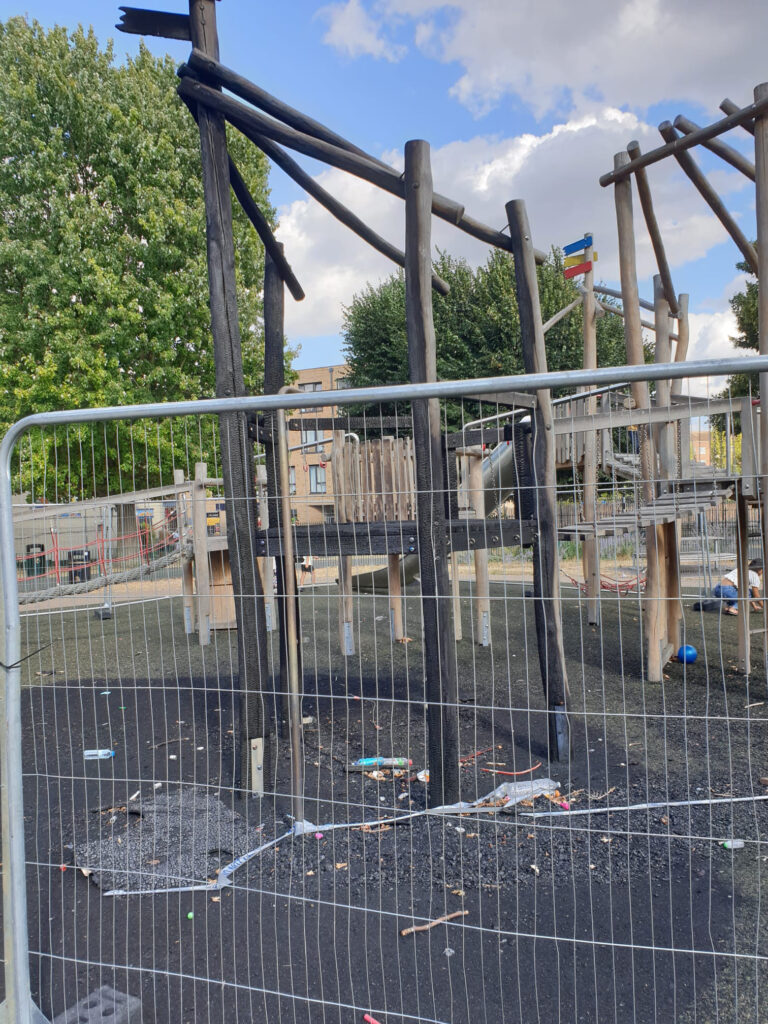
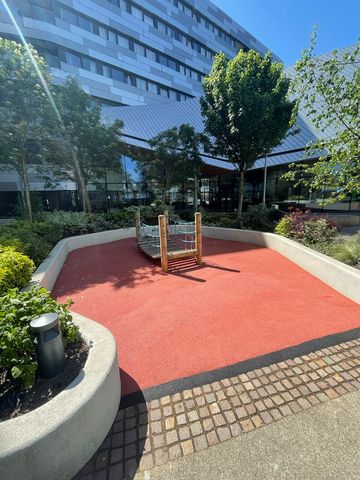 There are also questions about the quality of some new playgrounds. London Play’s recent campaign to find the capital’s ‘saddest’ playground not only yielded images of dilapidated and neglected older playgrounds, but also brand-new playgrounds that were painfully tokenistic. As one resident in Greenwich commented: “It’s staggering to think that this [pictured left] is the play area given to kids by the borough that proudly hosted the 2012 Olympics Gymnastics.”
There are also questions about the quality of some new playgrounds. London Play’s recent campaign to find the capital’s ‘saddest’ playground not only yielded images of dilapidated and neglected older playgrounds, but also brand-new playgrounds that were painfully tokenistic. As one resident in Greenwich commented: “It’s staggering to think that this [pictured left] is the play area given to kids by the borough that proudly hosted the 2012 Olympics Gymnastics.”
